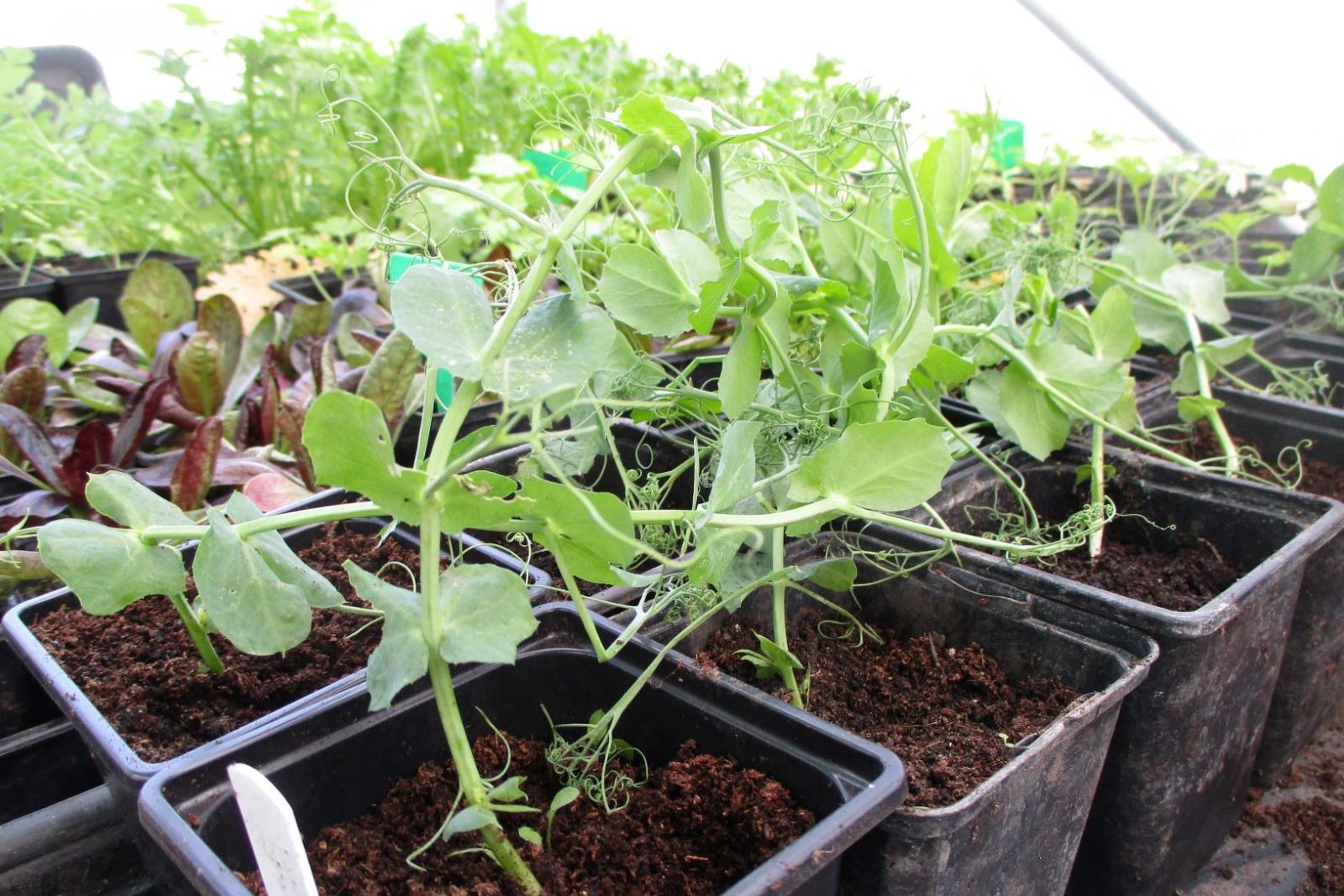Sustain • London Food Link • Articles
Growers Corner: Seeds in Spring
The sun has emerged, things are warming up, and Carolyn Wilson from Captial Growth shares tips to make the most of your garden now spring is finally here.

Now that it's spring, it's a good time to get things growing, make sure you give your seeds and seedlings the best chance. Now is also the time to plan what you'd like to grow in the year ahead. Choose things that you like to eat yourself, or want in your garden.
Sowing Seeds
- Some seeds (tomatoes, aubergines, cucumbers, peppers, chillies) will germinate best at slightly higher temperatures (15-20'C) than we can rely on in London right now. However, you can sow them somewhere warmer – either a heated propagator or somewhere inside your house that doesn't get too cold at night. Some people use an airing cupboard or similar just for the first few weeks.
- Once the seeds have sprouted into life and small seedlings have formed, they will need daylight, but can cope with more variable temperatures. This means they can be moved to an unheated greenhouse/polytunnel/cloche or a draughty window-sill.
- There are plenty of other seeds which can be sown now, including leeks, onions, peas, beans, radishes, kohl rabi, cauliflowers, celery, celeriac, spinach, all kinds of salad leaves and herbs (chives, oregano, dill, fennel, rocket, coriander, parsley).
- They don't need as much warmth to get started or to grow bigger. They will appreciate a nice moist growing medium, and a relatively sheltered environment while they germinate.
Planting Seedlings
- When your seedlings are big enough to plant on or out, you can 'pre-warm' the beds where you'll put them by laying cardboard/plastic across them now, ideally having already spread more mulch and/or compost there.
- Some gardeners use 'fleece' to protect these young seedlings – a light cover that can be laid across on top of them without crushing them – as it traps warmth from any spring sunshine and keeps out cold wind.
- If you're planning to grow in large pots/containers, you may be able to warm them in the sun before planting in them, and could find ways of insulating them to keep the soil warmer.
- This is also an excellent time to check any stakes/ties/wires holding up fruit bushes, trees and vines. It's much easier to do this while there's less foliage. Replace any that are broken, and adjust any that are now too tight (constricting new growth).
Garden planning
- Whatever the size of your growing space, it is important to think about where you'll grow your plants. The first step in any permaculture design is observation – spending time in the space, learning from what's already there, thinking about how conditions in each part of your garden will change throughout the year (some areas may enjoy/suffer from direct sunshine all day long, while others will end up in shade once there are leaves on the trees again).
- Drawing a map of your garden can help.
- Some gardeners, and many farmers, practice 'crop rotation' – they have a system to ensure that different types of plants are grown in different beds/fields from year to year. Perennial plants will keep growing in the same place forever, but with annual plants, you can decide where best to position them each year, based on your experiences and what else is growing nearby
Read about Captial Growth's Community Harvest initiative, providing gardens support to grow fresh produce for their local communities
Published Wednesday 7 April 2021
London Food Link: London Food Link brings together community food enterprises and projects that are working to make good food accessible to everyone in London to help create a healthy, sustainable and ethical food system for all.